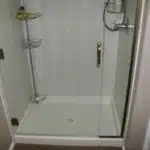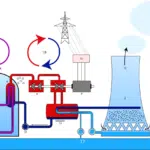Drains are an essential part of any plumbing system, and they play a crucial role in keeping our homes clean and hygienic. However, over time, they can become clogged with food particles, hair, soap scum, and other debris. This can lead to unpleasant smells emanating from the drains, which can be a major cause of discomfort and inconvenience for homeowners.
As a professional plumber with years of experience in the field, I have encountered countless cases where homeowners struggle to deal with stinky drains. In this article, I will share some tried-and-tested methods that you can use to clean your stinky drain effectively. Whether you are dealing with a kitchen sink drain or a bathroom sink drain, these tips will help you get rid of the odor and ensure that your home remains fresh and hygienic at all times.
Identifying The Cause Of The Stinky Drain
It is not uncommon for homeowners to experience a stinky drain at some point. It can be a frustrating and unpleasant experience, as the odor can linger long after you have used the sink or shower. Identifying the cause of the stinky drain is crucial in determining how to clean it effectively.
One common misconception is that a stinky drain is caused by poor hygiene habits. While this can be a contributing factor, it is not always the root cause. In fact, there are several reasons why your drain may emit an unpleasant odor, such as clogs, buildup of debris or food particles, and even mold growth.
Another reason why people may overlook the real cause of their stinky drain is due to its location. For instance, if your bathroom has poor ventilation or has been unused for an extended period, there may be stagnant water in the pipes that produce an offensive smell. Therefore, it’s essential to identify where the odor is coming from and what factors are causing it so that you can take appropriate measures to eliminate it.
By identifying causes and debunking misconceptions surrounding a smelly drain in your home, you can take necessary steps towards cleaning and eliminating it effectively. The next step involves removing visible debris from the drain to ensure that your pipes remain free-flowing and your home smells fresh again.
Removing Visible Debris From The Drain
After identifying the cause of the stinky drain, the next step is to remove any visible debris from the drain. Without clearing debris, it is impossible to eliminate the unpleasant smell coming from your drain. The easiest way to remove debris is by using a pair of gloves and a flashlight.
Firstly, remove any large visible objects that may be clogging the drain. This can be done by grabbing them with your gloves and pulling them out of the drain. If you cannot reach them with your gloves, use a pair of pliers or tweezers to extract them from the drain.
Secondly, use a plumbing snake to clear any remaining debris that you cannot see with your naked eye. A plumbing snake is a long, flexible tool that can extend deep into your pipes and pull out any clogs or blockages causing odor in your drains.
Finally, after clearing all visible debris from your drain, it is important to ensure proper maintenance to prevent future odors. Here are some tips for maintaining a clean and odor-free drain:
- Run hot water through your drains regularly to help dissolve any buildup.
- Use a mixture of vinegar and baking soda every few months to keep your drains fresh.
- Invest in a hair catcher for showers and tubs to prevent hair buildup in drains.
With these steps taken care of, you can now move on to using a plunger to clear the drain and fully eliminate any odors emanating from it.
Using A Plunger To Clear The Drain
To effectively clear a stinky drain, you may want to consider using a plunger. Plunging is a simple and effective way of dislodging blockages in your drain. However, it is important to follow proper plunging techniques to avoid causing damage to your plumbing system.
Before plunging, ensure that the sink or bathtub is filled with enough water to cover the rubber cup of the plunger. This creates a seal between the plunger and drain, which helps create suction while plunging. You should also remove any drain stoppers or screens that may obstruct the plunger’s movement.
When plunging, position the plunger over the drain and push down firmly but gently. Repeat this motion several times until you feel resistance from the clog. Then, pull up on the plunger quickly to break up the blockage. Be careful not to use excessive force as this can cause damage to your pipes.
It is important to take safety precautions when plunging a drain. Wear rubber gloves and protective eyewear in case of splashing water or debris. Additionally, do not use chemical drain cleaners before or after plunging as they can react with each other and cause harmful fumes or burns. Following these tips will help you safely and effectively clear your stinky drain.
As effective as plunging can be, it may not always completely eliminate odors from your drains. In such cases where lingering odors persist, using baking soda and vinegar can help neutralize unpleasant smells emanating from your drainage system.
Using Baking Soda And Vinegar
After using a plunger to clear the drain, you may still be left with a lingering smell. This is where using baking soda and vinegar comes in handy. However, there are alternative methods that can also effectively clean a stinky drain.
One of the benefits of vinegar is its ability to break down and dissolve organic matter, such as hair and soap scum, which can cause unpleasant odors in your drain. To use vinegar, start by pouring one cup down the affected drain. Let it sit for 30 minutes before flushing with hot water. If the odor persists, repeat the process.
In addition to vinegar, there are other alternative methods to baking soda and vinegar. For example, using lemon juice mixed with salt can be effective at eliminating unpleasant smells in drains. Simply pour one cup of lemon juice down the affected drain followed by half a cup of salt. Let it sit for 30 minutes before flushing with hot water. This method should only be used on metal pipes as it can cause damage to plastic pipes.
Transition: While baking soda and vinegar are popular methods for cleaning stinky drains, another effective method is using boiling water.
Using Boiling Water
When it comes to cleaning a stinky drain, using boiling water can be an effective method. However, it is important to take safety precautions before attempting this technique. First, ensure that the drain is clear of any debris or blockages that could cause the boiling water to splash back onto you or others nearby. Additionally, make sure that you are wearing protective gear such as gloves and goggles.
Boiling water has proven to be effective in clearing out odor-causing bacteria and buildup within the drain. When poured down the drain, the hot water works by breaking down and flushing away any substances that may be causing unpleasant smells. This method is often more efficient than using chemical cleaners, which can be harmful to both the environment and your plumbing system.
Using boiling water as a stinky drain solution can also evoke feelings of satisfaction and accomplishment in homeowners. As an added bonus, it is a cheap and easy method that requires minimal effort. By taking proper precautions and following these steps, homeowners can successfully eliminate unpleasant odors from their drains without having to rely on expensive or potentially hazardous products.
To further tackle stubborn clogs or blockages within your drain, consider using a drain snake. This tool can effectively break up and remove any buildup that may have accumulated over time. By combining this technique with boiling water, you can achieve optimal results in keeping your drains clean and fresh-smelling.
Using A Drain Snake
Boiling water is a great way to clean stinky drains, but it may not always be effective. If you’re dealing with a stubborn clog or a drain that emits a persistent odor, you may need to use more advanced methods like using a drain snake. A drain snake is a long and flexible tool used to unclog drains and pipes.
One of the benefits of using a drain snake is that it’s an effective way to remove tough clogs. Unlike boiling water, which can only dissolve certain types of debris, a drain snake can physically break down and remove obstructions in your pipes. Drain snakes are also relatively easy to use and affordable compared to other plumbing tools.
However, there are some disadvantages to using a drain snake. For instance, if you don’t know how to use it properly, you could damage your pipes or cause further clogging. Additionally, if the blockage is located deep within your plumbing system, the drain snake may not be able to reach it. In such cases, you may need to call in professional help.
Next up is using enzyme cleaners. These cleaners contain natural enzymes that break down organic matter like hair and soap scum without harming your pipes. Let’s take a closer look at how they work and how you can use them effectively.
Using Enzyme Cleaners
Back in the day, plumbers used to rely solely on chemicals like bleach and drain cleaners to tackle stinky drains. However, these products often contained harmful ingredients that could damage pipes and pose health risks for those using them. Thankfully, modern technology has given us enzyme cleaners – a safer and more effective alternative.
Effectiveness comparison is key when it comes to choosing the right cleaner for your drain. While traditional chemical cleaners may provide quick results, they often only mask the problem temporarily and can even damage your pipes over time. Enzyme cleaners work differently – they contain natural bacteria that feed on organic matter in your drain, breaking it down entirely and preventing future build-up. While the process may take a bit longer, it’s ultimately more effective and better for your plumbing system.
Safety considerations are also important when choosing a drain cleaner. Chemical cleaners can be dangerous if not used properly – they release toxic fumes that can harm both you and the environment. Enzyme cleaners are much safer – they’re non-toxic, biodegradable, and won’t harm your pipes or septic system. Plus, since they don’t contain harsh chemicals, you won’t have to worry about any potential health risks.
Looking for an even safer option? Using hydrogen peroxide and baking soda is another effective way to clean a stinky drain without resorting to harsh chemicals. Stay tuned for our next section on how to use this powerful combination for a clean and fresh-smelling drain!
Using Hydrogen Peroxide And Baking Soda
Hydrogen peroxide and baking soda are two common household items that can be used to clean a stinky drain. These substances work together to break down grease, grime, and other buildup that can cause unpleasant odors in the sink or shower drain. To use this method, start by pouring one cup of baking soda into the drain. Follow this up with one cup of hydrogen peroxide. Allow the mixture to sit in the drain for about 30 minutes before flushing it down with hot water.
One benefit of using hydrogen peroxide and baking soda is that they are both natural cleaning agents that are safe for the environment. Additionally, these substances are readily available and affordable, making them a convenient solution for those who want to avoid harsh chemicals or expensive products. However, it’s important to note that this method may not be as effective as some alternative solutions.
If you have tried using hydrogen peroxide and baking soda but still have a stinky drain, there are other options available. For example, commercial drain cleaners may be more effective at breaking down tough buildup and eliminating odors. However, these products often contain harsh chemicals that can be harmful if not used properly. It’s also worth noting that commercial drain cleaners can be more expensive than using household items like hydrogen peroxide and baking soda.
Transition: While commercial drain cleaners can be an effective option for stubborn stinky drains, it’s important to approach their use with caution.
Using Commercial Drain Cleaners
When it comes to cleaning a stinky drain, there are several methods that can be used. One of the most common options is using commercial drain cleaners. These products are designed to dissolve clogs and remove odors quickly and easily, making them a popular choice for homeowners.
Before reaching for a commercial drain cleaner, it’s important to weigh the pros and cons. On the one hand, these products are often very effective at removing clogs and odors without requiring any special tools or equipment. They’re also widely available and relatively affordable. However, there are some safety considerations to keep in mind. Many commercial drain cleaners contain harsh chemicals that can be dangerous if ingested or come into contact with skin or eyes.
If you do decide to use a commercial drain cleaner, it’s important to follow safety guidelines carefully. This may include wearing gloves and eye protection, avoiding breathing in fumes from the product, and keeping children and pets away from the area until the cleaner has been fully rinsed away. Additionally, it’s important to choose the right product for your needs – some are designed specifically for certain types of clogs or materials.
Overall, while commercial drain cleaners can be a quick and easy solution for cleaning a stinky drain, they do come with some risks. Before using one of these products, weigh the pros and cons carefully and take all necessary safety precautions to protect yourself and your family.
Preventing Future Clogs And Odors
Preventative measures can be taken to avoid future clogs and odors from forming in your drain. One of the simplest strategies is to avoid pouring grease or oil down your drain, as this can solidify and create a blockage. Additionally, installing a hair catcher over your drain can prevent hair from accumulating and causing blockages. Regularly cleaning this catcher will ensure optimal performance.
Another long term solution is to use enzymatic cleaners instead of harsh chemicals that can damage pipes and fixtures. These cleaners contain natural bacteria that break down organic matter, preventing it from building up in your drains. They work slowly over time, but are effective in keeping drains clear and odor-free without damaging plumbing.
Preventing future clogs and odors also involves being mindful of what is put down the drain. Food scraps, coffee grounds, and other debris can become trapped in pipes and cause buildup over time. It’s important to dispose of these items properly or compost them rather than letting them go down the drain.
Regular maintenance tips for keeping your drains clean will be covered in the following section. By taking preventative measures and adopting long term solutions, you can greatly reduce the likelihood of experiencing unpleasant odors or clogged drains in the future.
Regular Maintenance Tips
- Clogs in a drain can be unclogged by using a plunger or a drain snake.
- If a clog is too severe, a plumbing professional should be consulted to clear the clog.
- Cleaning the pipes in a drain regularly can help prevent clogs and foul odors.
- Cleaning the pipes can be done with a mixture of baking soda and vinegar poured into the drain followed by hot water.
Unclogging Clogs
A clogged drain can be a real nuisance for any homeowner. Not only does it cause water to back up, but it can also create unpleasant odors that linger in your home. Preventative measures are the key to avoiding a clogged drain. Regularly flushing the drain with hot water and using a hair catcher in the shower can help keep your pipes clear.
If you do find yourself with a clogged drain, there are several DIY solutions you can try before calling in a professional plumber. One popular method is pouring baking soda and vinegar down the drain, followed by boiling water. This combination helps break up any buildup and clear out the pipe. Another option is using a plunger to force air through the pipes and push out any blockages.
Regular maintenance is crucial for keeping your drains clean and odor-free. By taking preventative measures and utilizing DIY solutions when necessary, you can avoid costly repairs and enjoy a fully functioning plumbing system in your home. Remember, a little bit of effort now can save you from major headaches down the line.
Cleaning The Pipes
To ensure the longevity and efficiency of your plumbing system, regular maintenance is necessary. One essential aspect of this upkeep is cleaning the pipes. Over time, residue from soap, grease, and other materials can accumulate inside the pipes and cause blockages. This buildup can lead to slow draining water or even a complete stoppage.
To clean your pipes effectively, you have two options: cleaning chemicals or natural remedies. Cleaning chemicals are designed to dissolve the buildup inside your pipes quickly. However, they contain harsh chemicals that can be harmful to both your plumbing system and the environment. Natural remedies like baking soda and vinegar are a safer alternative that can break down buildup without damaging your pipes.
When using natural remedies, pour one cup of baking soda down the drain followed by one cup of vinegar. Wait for five minutes before pouring hot water down the drain to flush out any remaining residue. For tough clogs, use a plunger to loosen up any blockage and repeat the process with baking soda and vinegar.
By incorporating regular pipe cleaning into your plumbing maintenance routine, you can keep your drains flowing smoothly and avoid costly repairs in the future. Using natural remedies instead of harsh chemicals ensures that you’re not only maintaining your home but also protecting it and our planet’s environment as well.
Hiring A Professional Plumber
Regular Maintenance Tips for your plumbing system can help prevent potential issues such as clogged drains. However, in some cases, a stinky drain may still arise. When facing this problem, there are several DIY methods that you can try before hiring a professional plumber.
One cost-effective solution is to use baking soda and vinegar. Pour half a cup of baking soda down the drain, followed by half a cup of white vinegar. Cover the drain with a plug or cloth and let the mixture sit for about 30 minutes. Afterward, flush the drain with hot water to clear any remaining debris.
Another benefit of regular maintenance is that you’ll be able to detect any problems early on and avoid costly repairs down the line. But if you’re unable to get rid of the odor yourself, it may be time to hire a professional plumber who has the necessary tools and expertise to handle more complex issues.
By following these tips and maintaining your plumbing system regularly, you’ll not only save money in the long run but also ensure that your home remains clean and odor-free. In the next section, we’ll discuss some common mistakes to avoid when attempting DIY solutions for stinky drains.
Common Mistakes To Avoid
When it comes to cleaning stinky drains, there are several common mistakes that people make. One of the most frequent mistakes is an overuse of chemicals. While using chemicals can be effective in removing odors and clogs, excessive use can cause damage to the pipes and potentially harm the environment. It’s important to follow the instructions on any chemical cleaner carefully, and avoid using them too frequently.
Another mistake is ignoring small clogs. A small blockage may seem like a minor issue, but if left untreated, it can lead to more significant problems down the line. Small clogs can attract bacteria and other harmful substances that contribute to bad smells and unsanitary conditions. To prevent this from happening, it’s crucial to address even minor clogs as soon as possible.
A third mistake is failing to properly clean out the drain trap. The drain trap is located under the sink and collects debris that could otherwise clog the pipes. Over time, this debris can accumulate and lead to unpleasant odors. To clean out the trap, remove it carefully and empty its contents into a trash bag or compost bin. Rinse with warm water before replacing it back in its original position.
- Regularly inspect your drains for signs of clogging or unpleasant odors.
- Use natural cleaning methods whenever possible.
- Hire a professional plumber if you’re unsure about how to properly clean your drains.
In order to keep your drains functioning properly and smelling fresh, it’s essential to avoid these common mistakes when cleaning them out. By taking a proactive approach to drain maintenance, you’ll be able to prevent many potential issues from arising in the first place. In our next section, we’ll discuss some safety precautions that you should take when cleaning your drains at home.
Safety Precautions When Cleaning Drains
Despite the temptation to rush through cleaning a stinky drain, taking shortcuts can lead to costly mistakes. In the previous section, we discussed some of the common errors that homeowners make when cleaning drains. However, it’s just as important to prioritize safety while working on your plumbing.
Protective gear is crucial when cleaning drains. It’s essential to wear gloves and eye protection to prevent skin irritation and exposure to harmful chemicals. Additionally, you should work in a well-ventilated area or use an exhaust fan to avoid inhaling fumes from harsh cleaners.
When handling chemicals, proper disposal is critical. Never pour them down the drain or dispose of them in regular household trash. Check with your local authorities for guidelines on chemical waste disposal in your area. Lastly, keep all cleaning supplies out of reach of children and pets.
Transition into subsequent section: While these safety precautions may seem like common sense, they’re often overlooked or ignored by DIY enthusiasts tackling plumbing projects themselves. Let’s now explore some frequently asked questions about how to clean stinky drains safely and effectively.
Frequently Asked Questions About Cleaning Stinky Drains
FAQ Answers About Cleaning Stinky Drains
Many homeowners are often faced with the unpleasant task of cleaning stinky drains. In this section, we’ll address some frequently asked questions about this topic to help you tackle the issue effectively.
- What Causes Smelly Drains?
Smelly drains are usually caused by a buildup of organic matter such as hair, grease, soap scum, and food particles that have gotten stuck in the drain pipes over time. This buildup can lead to bacterial growth and produce foul odors.
- How Can I Clean My Drain Naturally?
There are several home remedies that you can use to clean your drain naturally. One effective method is pouring a mixture of baking soda and vinegar down the drain followed by hot water. Other options include using lemon juice, salt, or even coffee grounds to deodorize and break up clogs.
- When Should I Call a Professional Plumber?
If you’ve tried all the home remedies and your drain still smells bad or is clogged, it may be time to call in a professional plumber. They have specialized equipment and expertise to diagnose and fix more severe plumbing issues that may be causing the odor or blockage.
In summary, smelly drains are a common problem that can be solved with some simple home remedies or by calling a professional plumber if needed. Knowing what causes these odors and how to clean them naturally will help keep your drains fresh and odor-free.
Conclusion
In conclusion, cleaning a stinky drain can be a daunting task, but with the right tools and techniques, it can be easily accomplished. Identifying the cause of the odor is crucial in determining the appropriate method to use. Removing visible debris from the drain and using a plunger are effective ways to clear clogs and eliminate odors.
For more stubborn odors, baking soda and vinegar or boiling water can be used. It is important to avoid common mistakes such as using chemical cleaners or pouring hot oil down the drain. Hiring a professional plumber may also be necessary for more serious issues. Safety precautions should always be taken when working on drains.
In summary, maintaining clean and odor-free drains is essential for a healthy home environment. By following these tips and techniques, homeowners can effectively clean their stinky drains and prevent future problems. Remember to always prioritize safety when working with plumbing systems, and don’t hesitate to seek professional assistance if needed.
Image Credits

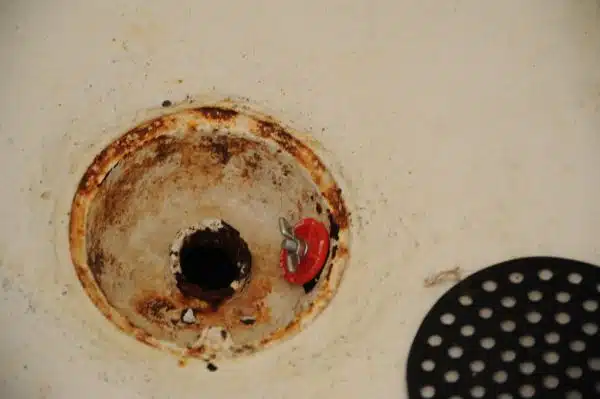
![How To Get Hair Out Of A Bathtub Drain 2 2/365 [Bathtub Drain]](https://green-life.blog/wp-content/uploads/2023/05/cOEu5edpkejq-150x150.jpg.webp)




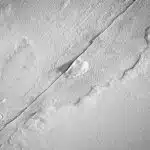
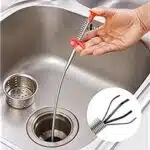

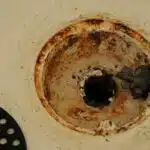
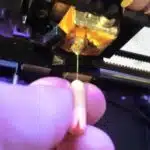
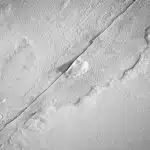
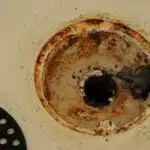

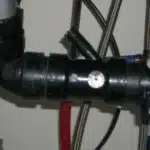

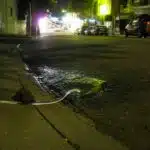
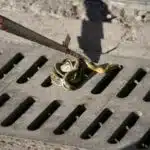
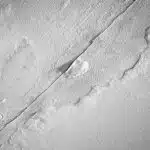

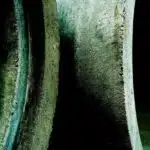
![How To Remove Perfume Odors From Clothes 22 For pungency, strength, durability and delicacy of odor. Read's Grand Duchess Cologne. [back]](https://green-life.blog/wp-content/uploads/2023/05/b-myfoHrx-jq-150x150.jpg.webp)
![How To Replace A Bathtub Drain In A Mobile Home 23 2/365 [Bathtub Drain]](https://green-life.blog/wp-content/uploads/2023/05/3ft8KAJsNnjq-150x150.jpg.webp)


